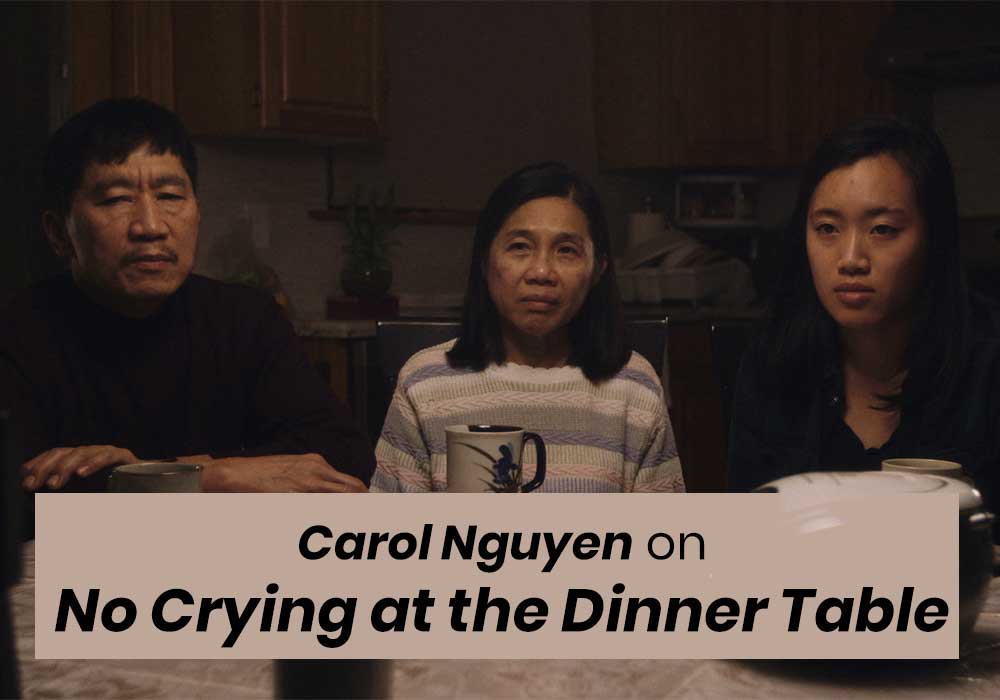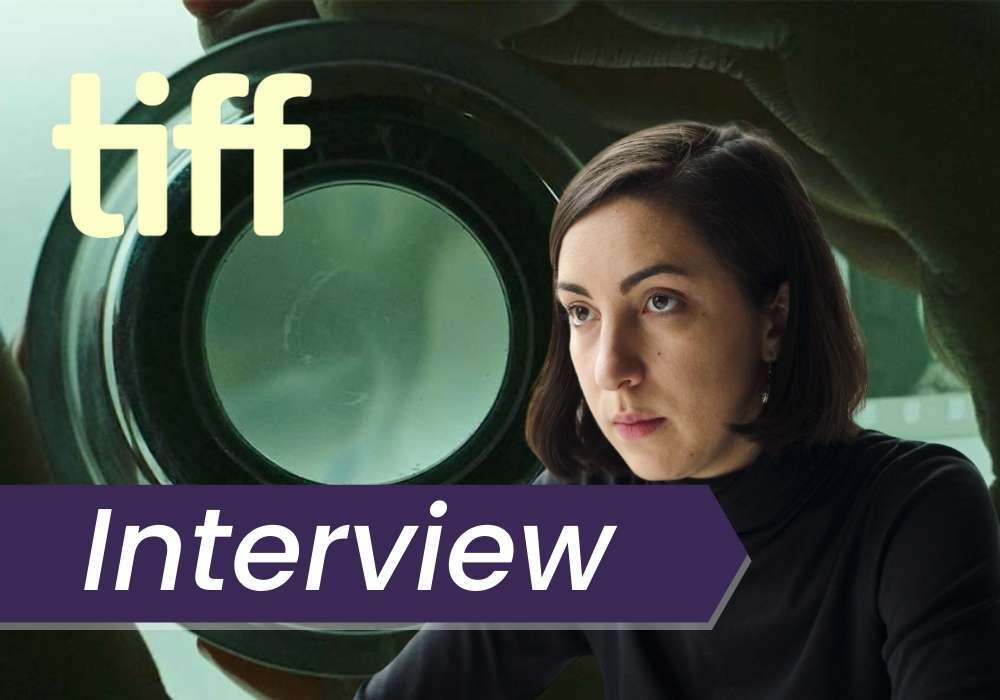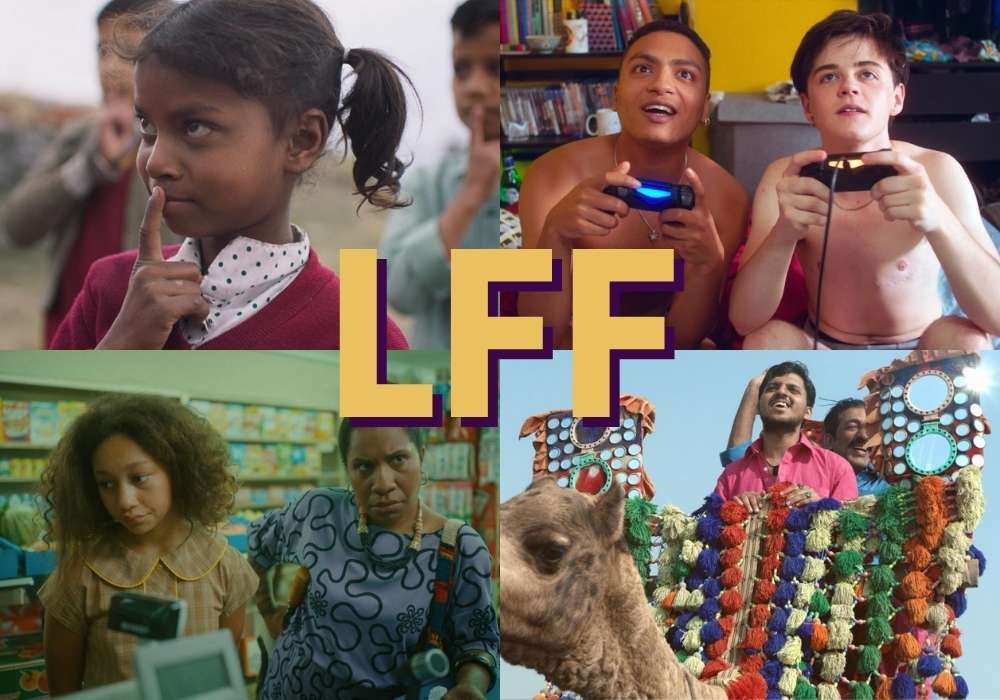Milly Gribben provides a run down of the best short films to catch at the London Short Film Festival (LSFF) 2021.
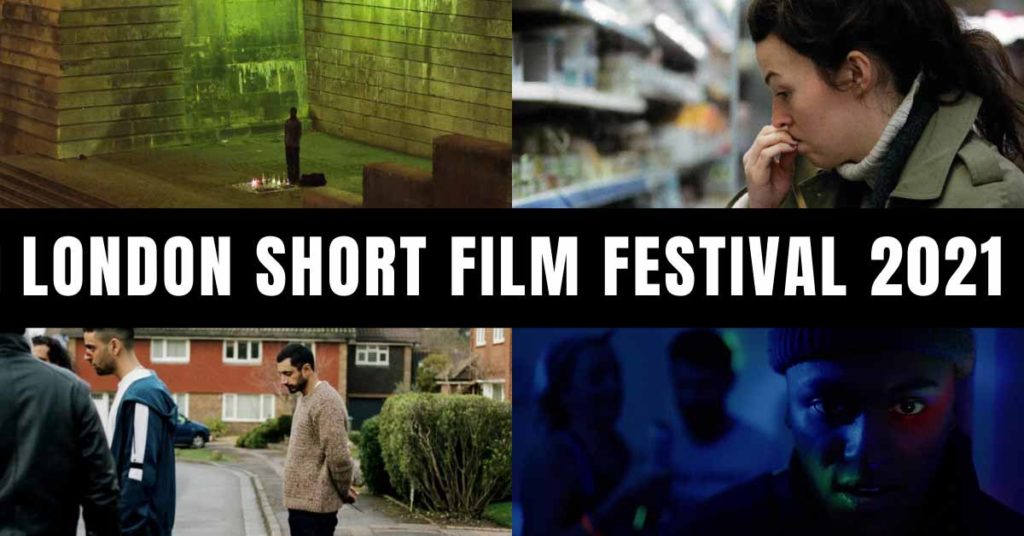
Discover one film you didn’t know you needed:
Not in the zeitgeist. Not pushed by streamers.
But still easy to find — and worth sitting with.
And a guide to help you do just that.
I’ve only seen a fraction of what the London Short Film Festival (15th-24th Jan) has to offer, and I’m already incredibly impressed by the variety of the lineup. So many different styles and genres are represented in these shorts: from bleak and gritty social realism, to experimental and intimate documentaries, to surreal animation, to bizarre horror. I witnessed a family fracturing over Zoom (Sisters), was transported to the nostalgia and discomfort of British secondary school in the mid-2000’s (ShagBands) and watched as a woman became disturbingly obsessed with her neighbour (Scrubber). The festival is a brilliant opportunity to discover emerging talent or to see established names like Riz Ahmed (The Long Goodbye) or Daniel Kaluuya (Two Single Beds) in smaller productions.
Programme tickets start from just £4 so I really urge everyone to delve into the broad selection. If you are in need of inspiration, I’ve written about six standout shorts. There is also an industry pass available for just £10, which will give you access to the entire programme from anywhere in the world.
Mandem (John Oguumuyiwa)
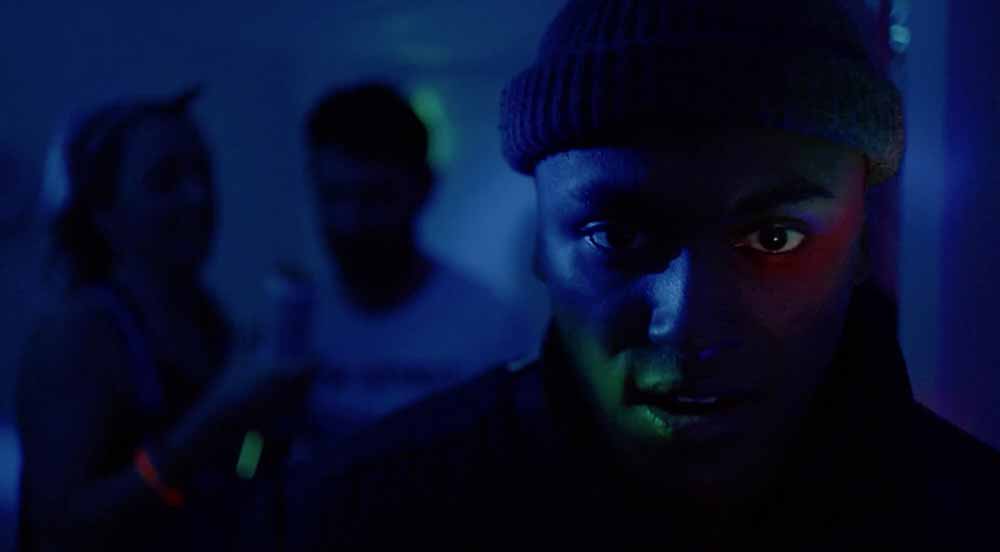
John Oguumuyiwa’s Mandem is a vibrant, extremely watchable short that follows two friends as they drive around London. They visit a patty shop, get into a street fight, and deal drugs to London’s white upper class. The humour and joyful ease of the script is emphasised by snappy editing that whisks the audience from one scenario to the next. Most notable about the short, however, is its refreshing approach to Black masculinity, depicting a wonderfully open, tactile, and tender relationship between the two men.
We also loved Mandem at the London Film Festival last year, where Ben Flanagan sang its praises.
Mandem has already screened at LSFF.
Filipiñana (Rafael Manuel)
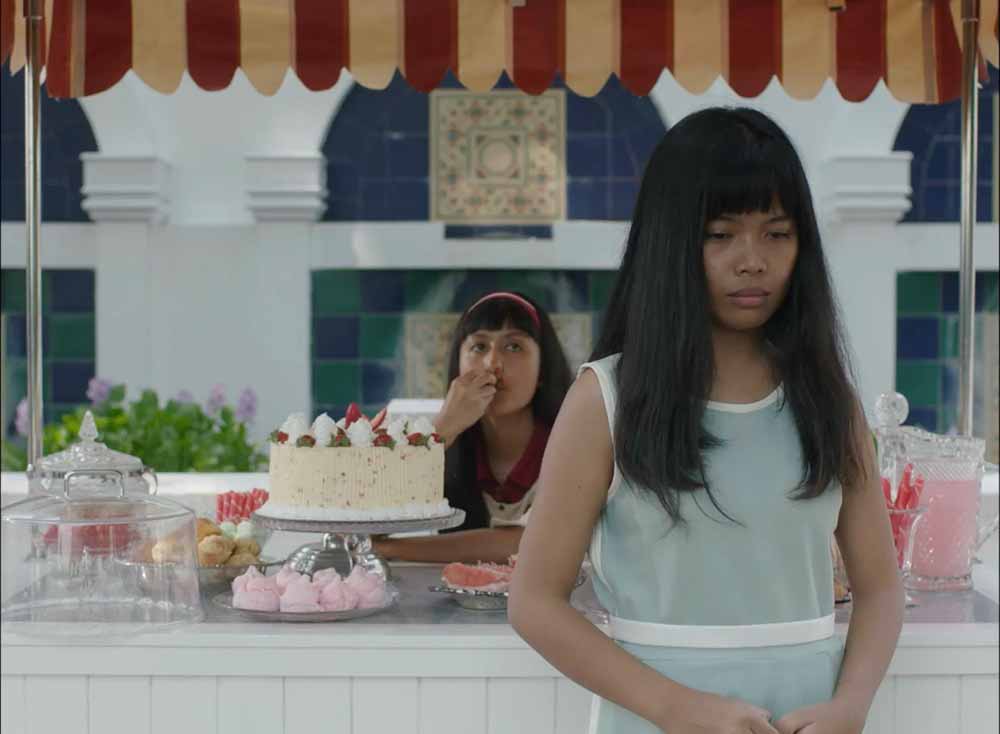
The Kickstarter page for Rafael Manuel’s Filipiñana describes the short film as “an exploration of exploitation and marginalisation within hierarchical structures, using the golf course setting as a microcosm for Philippine society.” It absolutely lives up to that description, highlighting the invisible labour and vast economic inequality teeming just beneath society’s surface through the day to day existence of “tee-girl” Isabel (Jorrybell Agoto).
Isabel’s corpulent boss leaves rich and decadent food to fester while her exhausted employees are reprimanded for taking the smallest morsel. Flies buzz around the boss, suggesting the rotten, fetid core underneath her veneer of luxury, elegance, and respectability. Through this attention to detail and thoughtful visual language, Manuel creates a distinctive atmosphere and sense of place.
Filipiñana has already screened at LSFF.
The Name I Call Myself (Rhea Dillon)
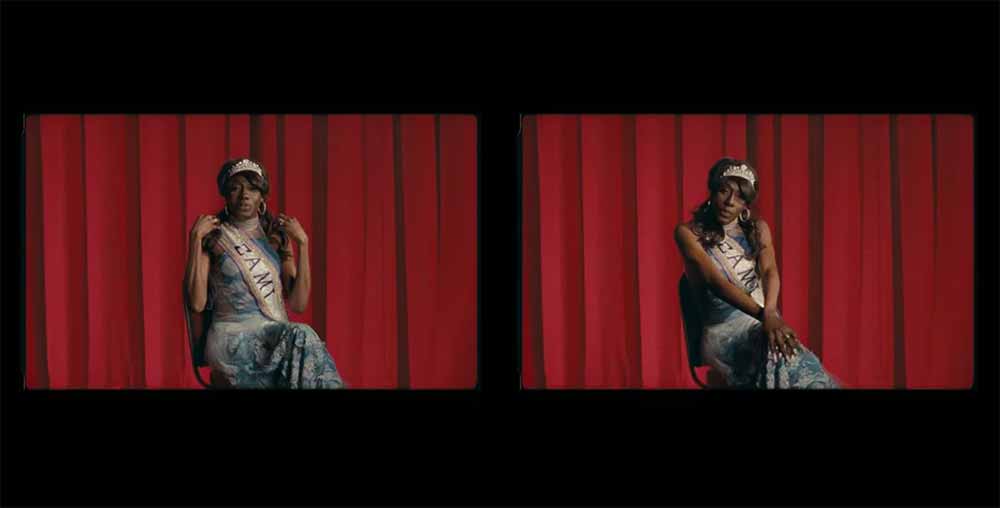
In The Name I Call Myself, director Rhea Dillon creates a dreamy exploration and celebration of Black and LGBTQ+ self-expression. A voiceover of Audre Lorde’s writing accompanies images of family, queer love, and the Ballroom scene. A split screen is used to lovingly and generously display these lives from many angles rather than a rigid, fixed perspective. This also serves as a powerful reference to W.E.B. Du Bois’s concept of Black “double consciousness”.
The Long Goodbye (Aniel Karia)
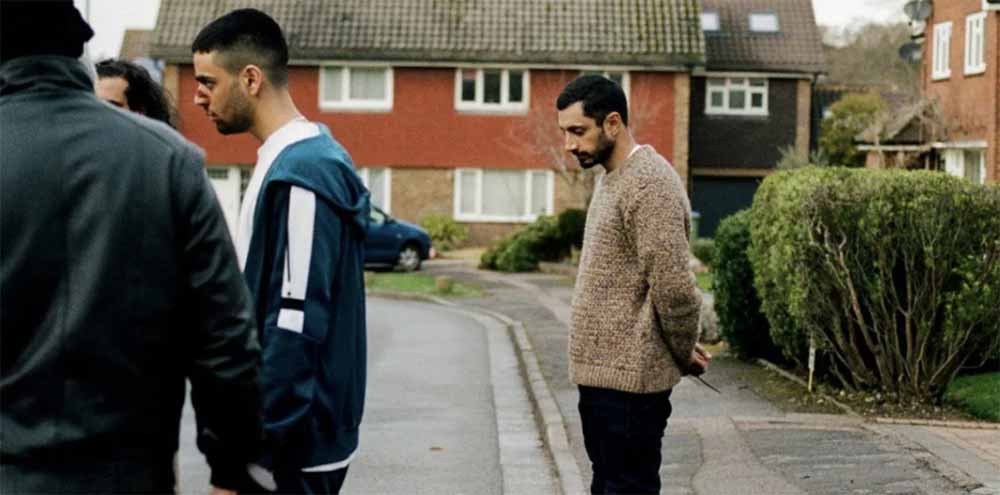
Riz Ahmed stars in director Aniel Karia’s bracing dystopian short The Long Goodbye. The film begins as a warm, authentic picture of family life. Dance, laughter, and music suffuse the household while siblings have petty squabbles over where to hang a poster. A creeping dread haunts the scene as images of protest and violence linger on a television in the periphery. This underlying tension soon gives way to jolting violence enacted by far-right white British nationalists. The film as a whole, and particularly Ahmed’s closing rap, powerfully humanises those who are still harmed and othered by British colonial violence.
Difficult (Tal Amiran)
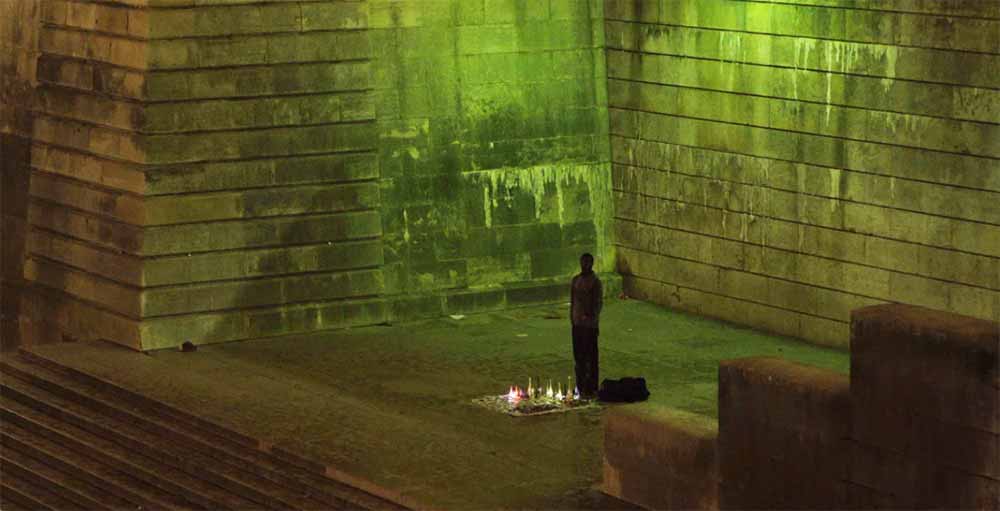
Tal Amiran’s documentary Dafa Meti (Difficult) considers the lives of Senegalese refugees in Paris as they work to support their families by selling souvenirs underneath the Eiffel Tower. The film makes the powerful decision to conceal the faces of its subjects, instead using spaces and items as symbols for culture and identity. This anonymity underpins the isolation and marginalisation of the refugee experience and suggests that these men are only a handful of many facing such hardship.
The Shift (Laura Carreira)
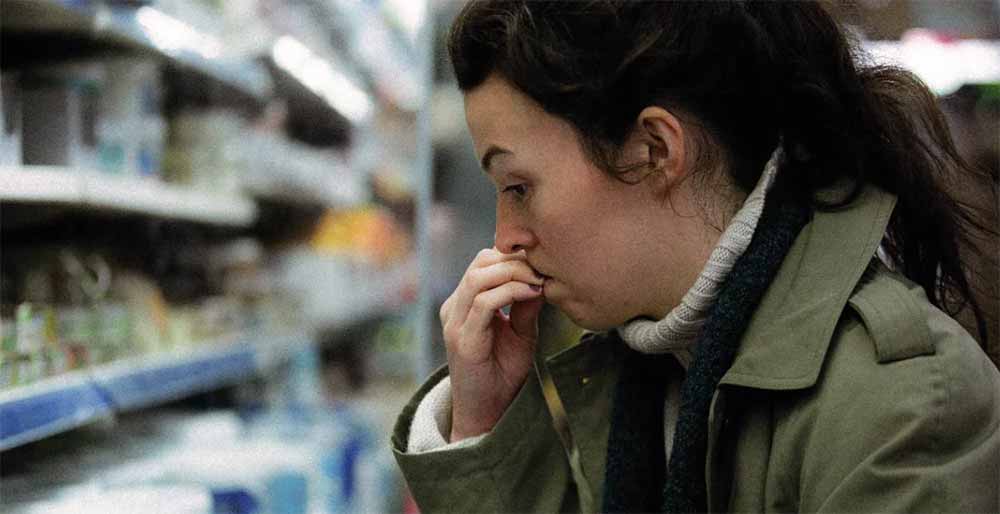
The Shift is an incredibly moving and deceptively simple short written and directed by Laura Carreira. It follows agency worker Anna (Anna Russell Martin) as she shops for herself and her dog, carefully choosing affordable items, often at a reduced price. This mundane shopping trip becomes an investigation of class disparity as the ease and Carreira contrasts the comfort of other shoppers with Anna’s desperation and humiliation. It does not feel like an exploitative vision of poverty, but rather, one that is sensitively judged and quietly seethes at the injustice of Anna’s plight. Martin’s central performance is raw and believable, carrying the film through to its haunting final frame.
You could be missing out on opportunities to watch great films at virtual cinemas, VOD, and festivals.
Subscribe to the Seventh Row newsletter to stay in the know.
Subscribers to our newsletter get an email every Friday which details great new streaming options in Canada, the US, and the UK.
Click here to subscribe to the Seventh Row newsletter.
